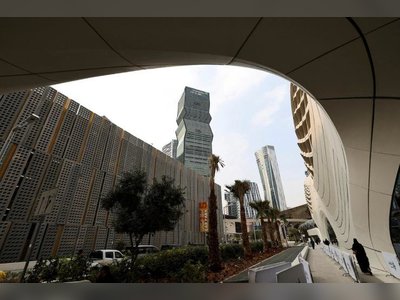
Hamas Announces Further Release of Israeli Hostages Amid Complex Ceasefire Negotiations
Four female Israeli hostages to be exchanged for Palestinian prisoners as mediator countries facilitate ongoing negotiations.
Hamas has declared its intention to release four more female Israeli hostages this weekend in exchange for Palestinian prisoners, marking a continuation of the negotiated ceasefire amid regional and international diplomatic efforts.
This comes as the United States' newly inaugurated President, Donald Trump, publicly expressed skepticism regarding the durability of the ceasefire agreement, which he played a role in brokering during the final days of the previous U.S. administration.
The anticipated exchange will likely include female Israeli soldiers who were captured during Hamas’s coordinated attacks on southern Israel on October 7, 2023. These soldiers are set to be swapped for Palestinian prisoners held in Israeli custody.
Some of these Palestinian prisoners, classified as serving extended sentences, are expected to be deported to third countries.
Following the recent release of three Israeli women, official figures indicate that seven remain from the original group of 33 hostages designated for release under the first phase of this tripartite ceasefire arrangement, which encompasses women, children, seniors, and those with medical conditions.
Among these, five Israeli women soldiers were reportedly captured during the October assaults.
Speculation within Israeli media suggests the forthcoming release might include one civilian and three Israel Defense Forces (IDF) spotters apprehended in the locality of Nahal Oz. Arrangements for the hostages' release are predicted to mirror previous exchanges, involving handovers to the Red Cross, subsequent transfer to Israeli forces, and reciprocal release of Palestinian detainees within hours.
Senior Israeli intelligence officials, including the Mossad's David Barnea and Shin Bet's Ronen Bar, have recently traveled to Cairo to discuss the deportation logistics for Palestinian prisoners as per the ceasefire terms.
This visit highlights ongoing international engagement, with Egyptian intelligence playing a crucial mediating role.
Currently, Israel holds over 10,300 Palestinian prisoners, while approximately 96 Israelis are believed to remain detained in Gaza.
This situation follows the recent release of three women, which included Israeli-British national Emily Damari, in an exchange for 90 Palestinian prisoners mostly consisting of women and minors.
Hamas representative Nader Fakhouri has affirmed the continuation of the initial phase of the agreement starting Saturday, with the actual exchange expected on Sunday.
The terms of the ceasefire stipulate that each Israeli soldier's release correlates to the release of 30 Palestinian prisoners serving life sentences and 20 serving extended sentences.
President Trump’s expressed doubts over the ceasefire's sustainability were made public during his signing of executive orders, underscoring concerns about the fragility of this multifaceted deal.
Trump, a principal advocate for the ceasefire during the recent U.S. presidential transition, remarked on its complexities and the geopolitical tensions involved.
In parallel developments, Israeli military sources have signaled a tentative reopening of northern Gaza for displaced residents, conditional upon Hamas's adherence to the ceasefire's stipulations.
Additionally, emergency responders in Gaza have reported the discovery of numerous bodies in areas like Khan Younis and Rafah, highlighting the dire humanitarian situation in the region.
According to the Gaza information office, more than 11,000 individuals are still unaccounted for following recent hostilities.
This comes as the United States' newly inaugurated President, Donald Trump, publicly expressed skepticism regarding the durability of the ceasefire agreement, which he played a role in brokering during the final days of the previous U.S. administration.
The anticipated exchange will likely include female Israeli soldiers who were captured during Hamas’s coordinated attacks on southern Israel on October 7, 2023. These soldiers are set to be swapped for Palestinian prisoners held in Israeli custody.
Some of these Palestinian prisoners, classified as serving extended sentences, are expected to be deported to third countries.
Following the recent release of three Israeli women, official figures indicate that seven remain from the original group of 33 hostages designated for release under the first phase of this tripartite ceasefire arrangement, which encompasses women, children, seniors, and those with medical conditions.
Among these, five Israeli women soldiers were reportedly captured during the October assaults.
Speculation within Israeli media suggests the forthcoming release might include one civilian and three Israel Defense Forces (IDF) spotters apprehended in the locality of Nahal Oz. Arrangements for the hostages' release are predicted to mirror previous exchanges, involving handovers to the Red Cross, subsequent transfer to Israeli forces, and reciprocal release of Palestinian detainees within hours.
Senior Israeli intelligence officials, including the Mossad's David Barnea and Shin Bet's Ronen Bar, have recently traveled to Cairo to discuss the deportation logistics for Palestinian prisoners as per the ceasefire terms.
This visit highlights ongoing international engagement, with Egyptian intelligence playing a crucial mediating role.
Currently, Israel holds over 10,300 Palestinian prisoners, while approximately 96 Israelis are believed to remain detained in Gaza.
This situation follows the recent release of three women, which included Israeli-British national Emily Damari, in an exchange for 90 Palestinian prisoners mostly consisting of women and minors.
Hamas representative Nader Fakhouri has affirmed the continuation of the initial phase of the agreement starting Saturday, with the actual exchange expected on Sunday.
The terms of the ceasefire stipulate that each Israeli soldier's release correlates to the release of 30 Palestinian prisoners serving life sentences and 20 serving extended sentences.
President Trump’s expressed doubts over the ceasefire's sustainability were made public during his signing of executive orders, underscoring concerns about the fragility of this multifaceted deal.
Trump, a principal advocate for the ceasefire during the recent U.S. presidential transition, remarked on its complexities and the geopolitical tensions involved.
In parallel developments, Israeli military sources have signaled a tentative reopening of northern Gaza for displaced residents, conditional upon Hamas's adherence to the ceasefire's stipulations.
Additionally, emergency responders in Gaza have reported the discovery of numerous bodies in areas like Khan Younis and Rafah, highlighting the dire humanitarian situation in the region.
According to the Gaza information office, more than 11,000 individuals are still unaccounted for following recent hostilities.











